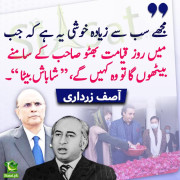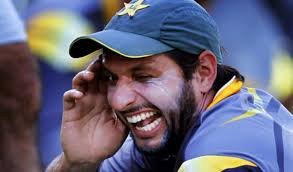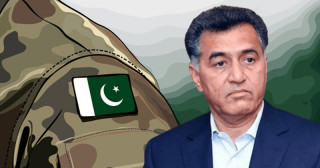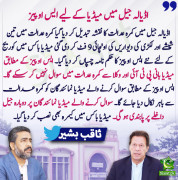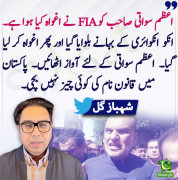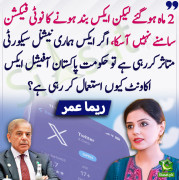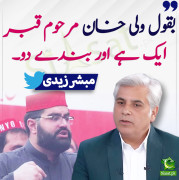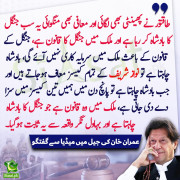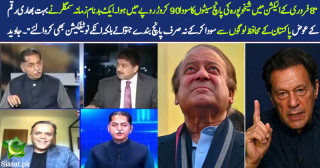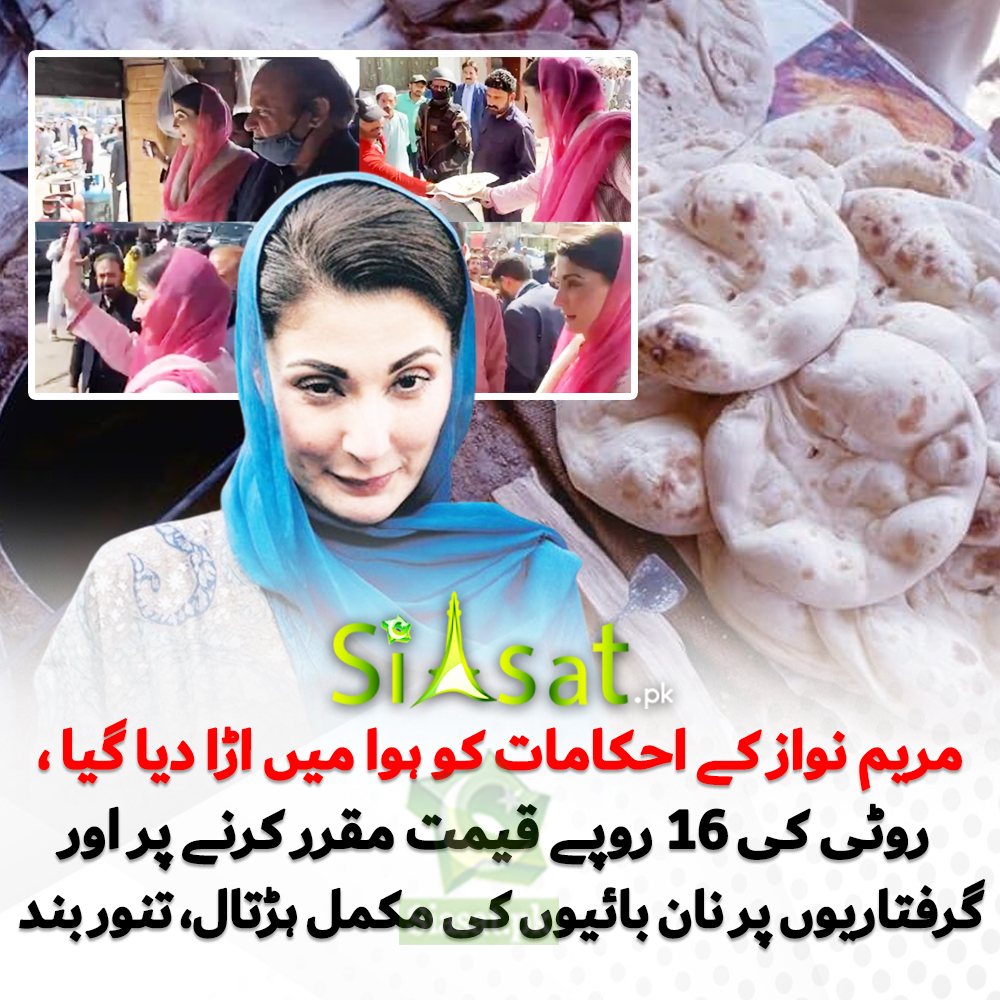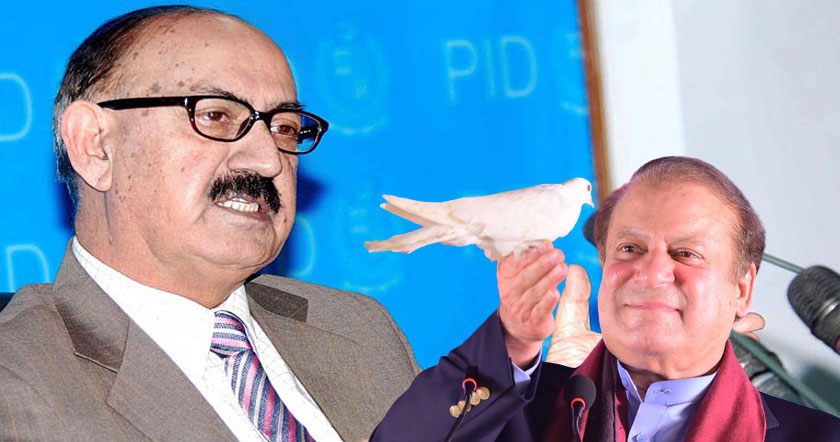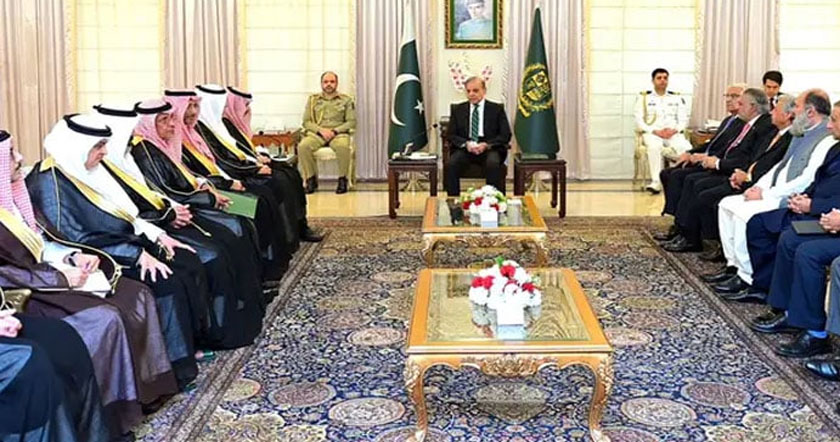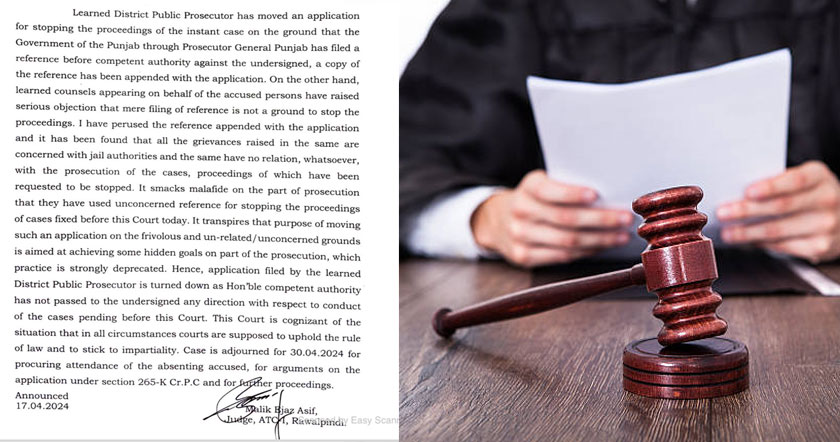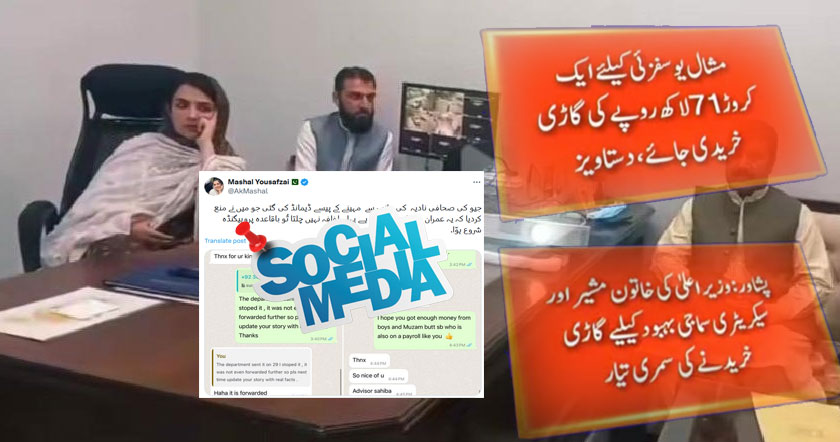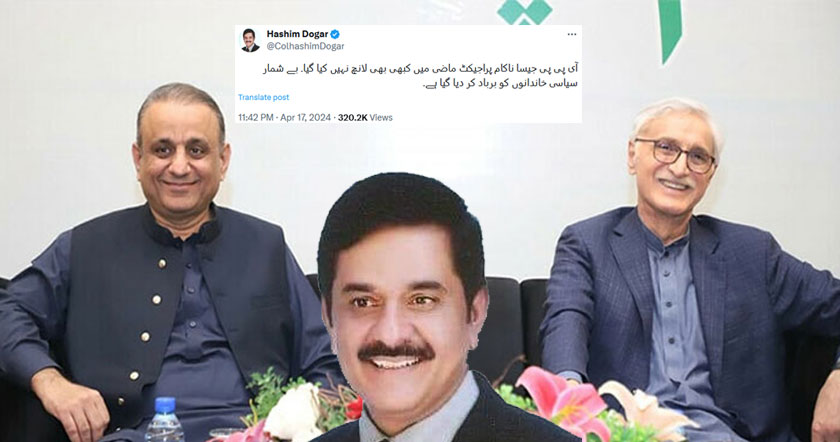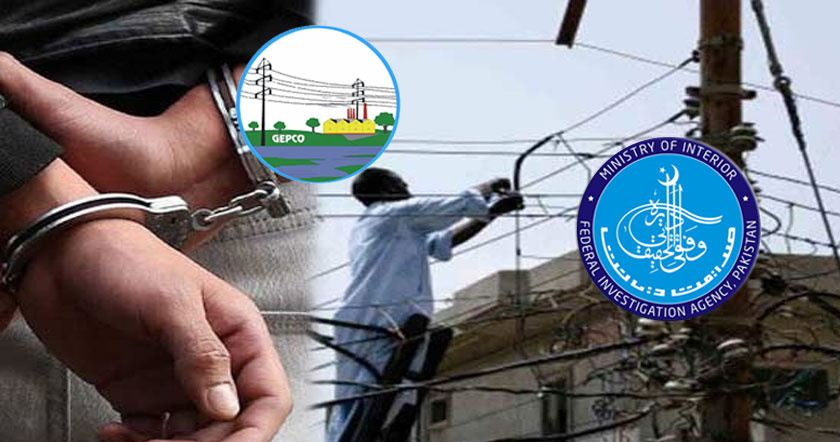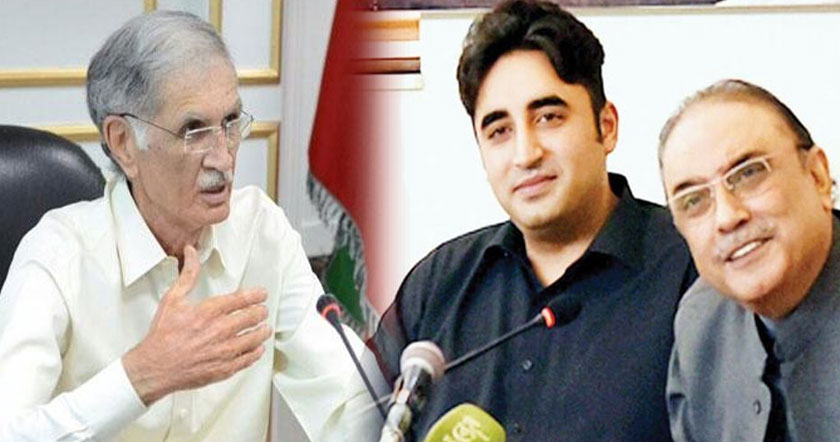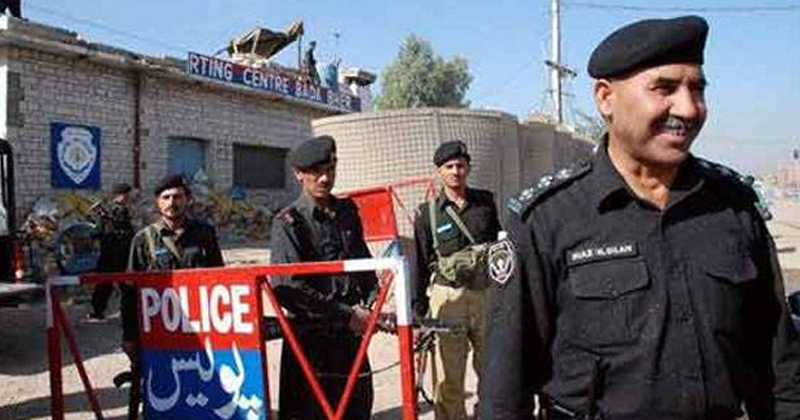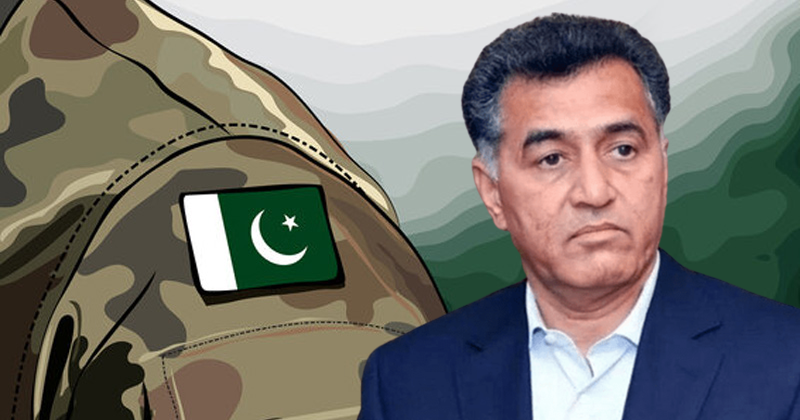The strange case of the cricket match that helped fund Imran Khan’s political rise
Despite laws banning foreign funding of politics in Pakistan, documents show a money trail from Oxfordshire via the UAE to the coffers of Khan’s party
Author: Simon Clark (28 July 2022 Financial Times)
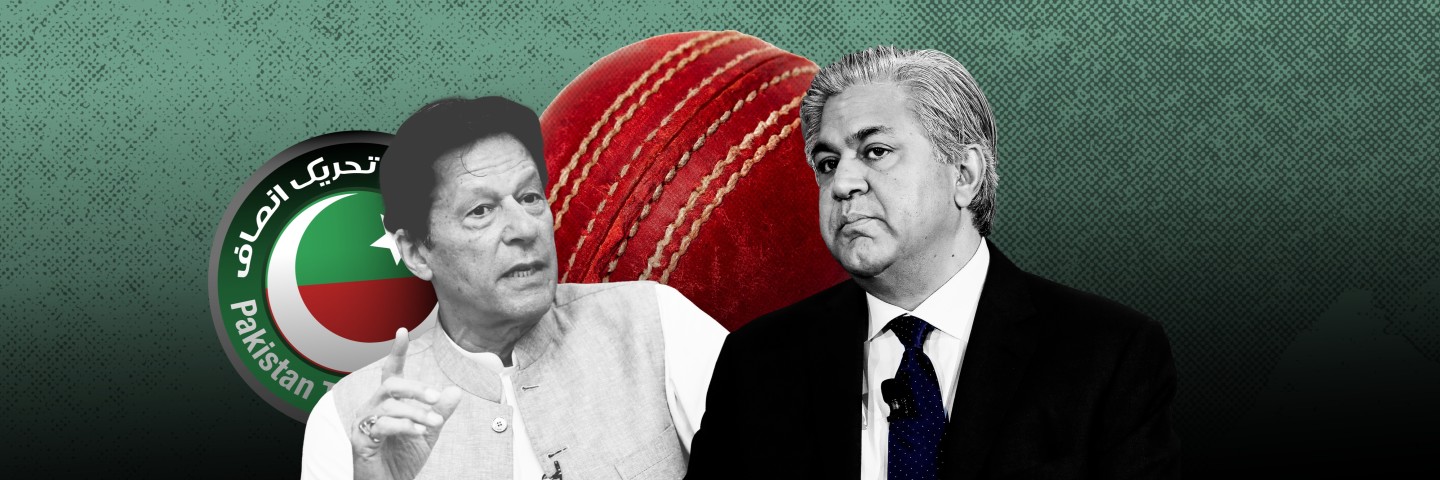
At the height of his success, the Pakistani tycoon Arif Naqvi invited cricket superstar Imran Khan and hundreds of bankers, lawyers and investors to his walled country estate in the Oxfordshire village of Wootton for weekends of sport and drinking. The host was the founder of the Dubai-based Abraaj Group, then one of the largest private equity firms operating in emerging markets, with billions of dollars under management.
At the “Wootton T20 Cup”, over which Naqvi presided from 2010 to 2012, the main event was a cricket tournament between teams with invented names: the Peshawar Perverts or the Faisalabad Fothermuckers. They played on an immaculate pitch amid 14 acres of formal gardens and parkland at Wootton Place, Naqvi’s 17th-century residence. Veteran cricket commentator Henry Blofeld attended along with expert umpires and film crews.
“You can choose to play in order to impress or make a fool of yourself, or alternatively just to be an innocent bystander,” Naqvi wrote in an invitation to the event. The guests were asked to pay between £2,000 and £2,500 each to attend, with the money going to unspecified “philanthropic causes”, Naqvi said.
It is the type of charity fundraiser repeated up and down the UK every summer. What makes it unusual is that the ultimate benefactor was a political party in Pakistan. The fees were paid to Wootton Cricket Ltd, which, despite the name, was in fact a Cayman Islands-incorporated company owned by Naqvi and the money was being used to bankroll Pakistan Tehreek-e-Insaf, Khan’s political party.
Funds poured into Wootton Cricket from companies and individuals, including at least £2mn from a United Arab Emirates government minister who is also a member of the Abu Dhabi royal family.
Pakistan forbids foreign nationals and companies from funding political parties, but Abraaj emails and internal documents seen by the Financial Times, including a bank statement covering the period between February 28 and May 30 2013 for a Wootton Cricket account in the UAE, show that both companies and foreign nationals as well as citizens of Pakistan sent millions of dollars to Wootton Cricket — before money was transferred from the account to Pakistan for the PTI.
The funding of the party is at the centre of a years-long investigation by the Election Commission of Pakistan, an inquiry that has taken on even greater importance as Khan — who lost office in April — plots a political comeback.
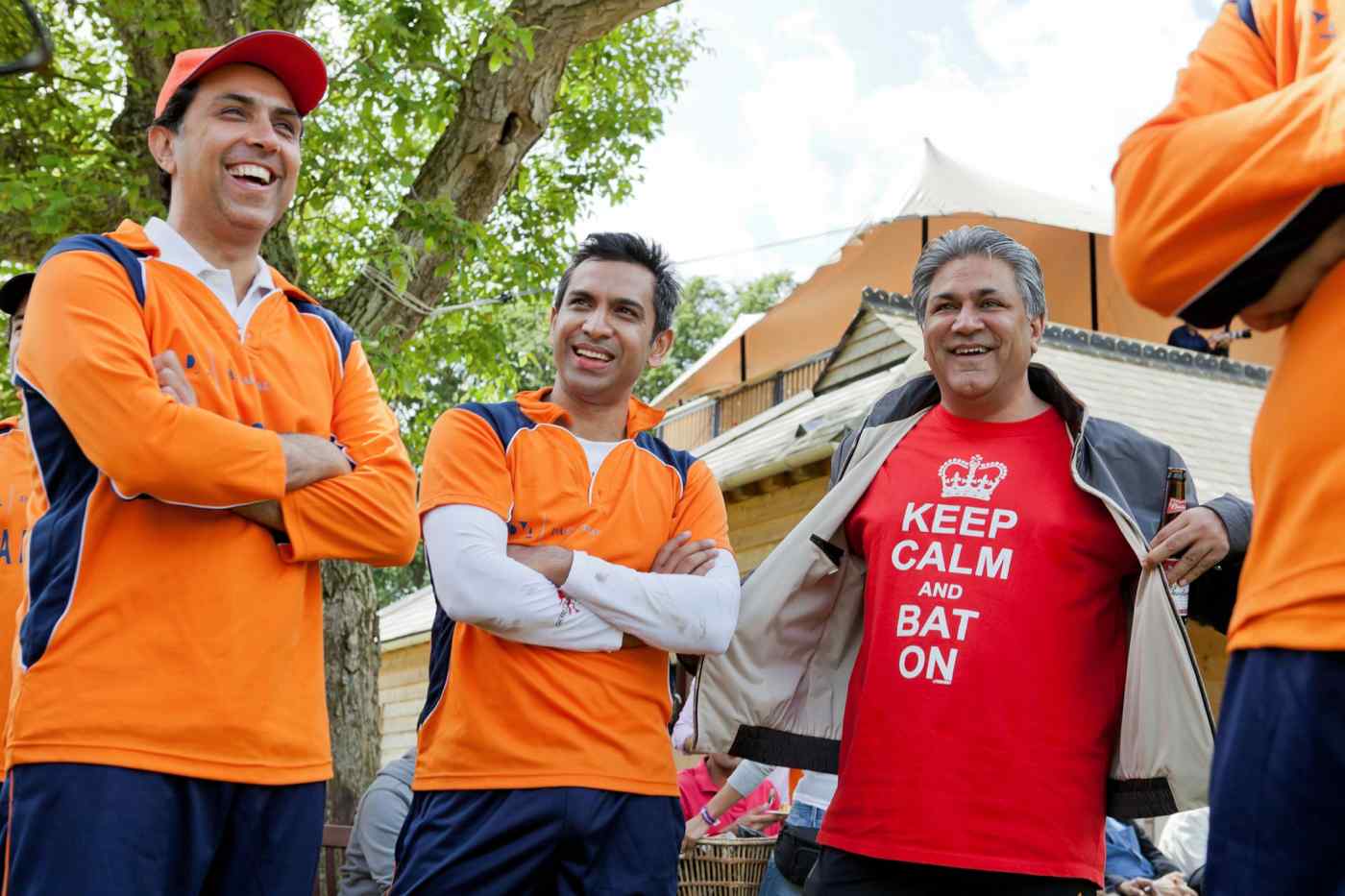
Arif Naqvi surrounded by players during the Wootton T20 Cricket Cup event at his Oxfordshire house
But back in 2013, Khan — a World Cup-winning cricket captain — was riding a wave of popular support and campaigning to upend Pakistan’s politics on an anti-corruption ticket. He presented himself to the electorate as a democratic reformer — born in Pakistan and with experience of living in the west — who could break the hold of the political family dynasties that had dominated the country for decades.
Although Khan lost the 2013 general election to longtime rival Nawaz Sharif, his party became the third largest in the National Assembly. Naqvi’s star was also rising. His private equity firm was expanding and winning new investors. He became a regular fixture at World Economic Forum meetings in Davos.
In July 2017, Pakistan’s Supreme Court removed Sharif from office over corruption allegations. Khan won the election in July 2018. As prime minister he became increasingly critical of the west, praising Afghanistan’s Taliban when US forces withdrew in 2021, and visiting Vladimir Putin in Moscow on the day Russian forces invaded Ukraine in February.
The Election Commission of Pakistan has been investigating the funding of the PTI for more than seven years. In January, the ECP’s scrutiny committee issued a damning report in which it said the PTI received funding from foreign nationals and companies and accused it of under-reporting funds and concealing dozens of bank accounts.
Wootton Cricket was named in the report, but Naqvi wasn’t identified as its owner. In April, Khan stood down after losing a parliamentary vote of no confidence, triggered in part by rising inflation. He has accused the US of orchestrating the vote and is now attempting to stage a political return to contest a general election due to take place by October 2023.
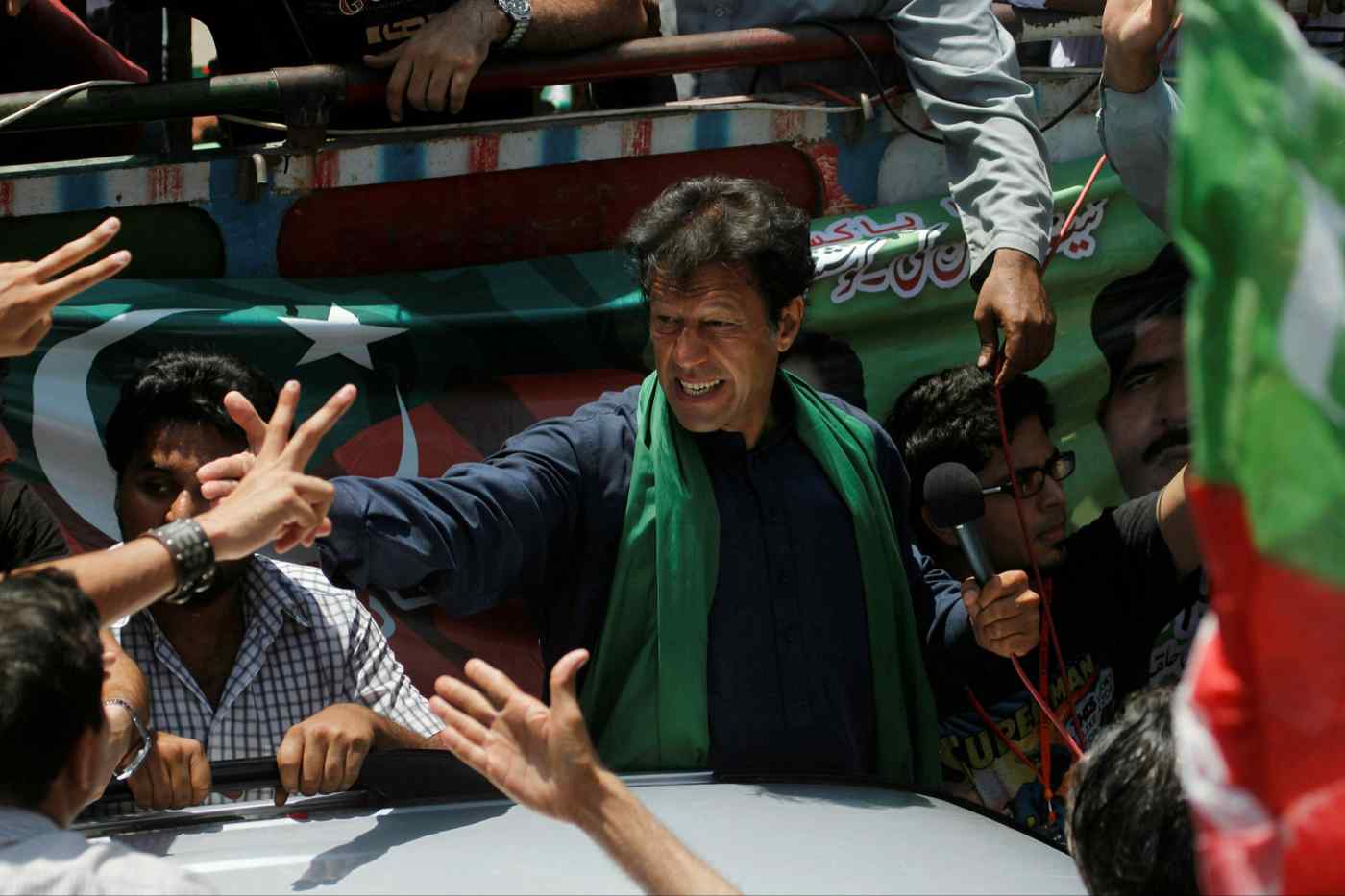
Imran Khan campaigning in Karachi in 2013. Although he lost that general election, his PTI became the third largest party in Pakistan’s National Assembly © Athar Hussain/Reuters
That re-election effort means that although the Naqvi funding took place almost a decade ago, the controversy around it, and the final findings of the election commission, are likely to be at the forefront of Pakistan politics for some time.
While it has previously been reported that Naqvi funded Khan’s party, the ultimate source of the money has never before been disclosed. Wootton Cricket’s bank statement shows it received $1.3mn on March 14 2013 from Abraaj Investment Management Ltd, the fund management unit of Naqvi’s private equity firm, boosting the account’s previous balance of $5,431. Later the same day, $1.3mn was transferred from the account directly to a PTI bank account in Pakistan. Abraaj expensed the cost to a holding company through which it controlled K-Electric, the power provider to Karachi, Pakistan’s largest city.
A further $2mn flowed into the Wootton Cricket account in April 2013 from Sheikh Nahyan bin Mubarak al-Nahyan, a member of Abu Dhabi’s royal family, government minister and chair of Pakistan’s Bank Alfalah, according to the bank statement and a copy of the Swift transfer details. Naqvi then exchanged emails with a colleague about transferring $1.2mn more to the PTI.
Six days after the $2mn arrived in the Wootton Cricket bank account, Naqvi transferred $1.2mn from it to Pakistan in two instalments. Rafique Lakhani, the senior Abraaj executive responsible for managing cash flow, wrote in an email to Naqvi that the transfers were intended for the PTI. Sheikh Nahyan didn’t respond to requests for comment.
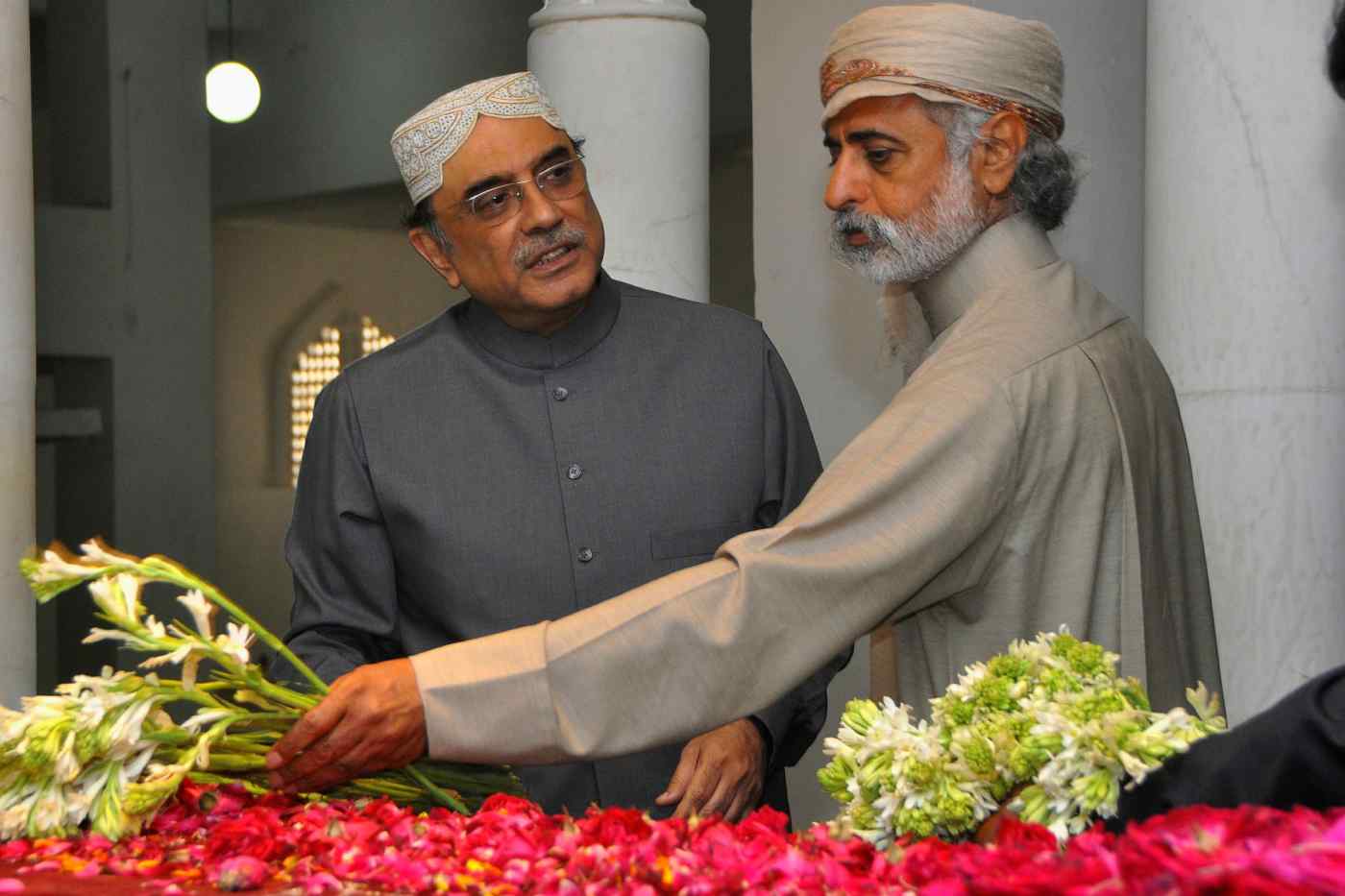
Abu Dhabi royal Sheikh Nahyan bin Mubarak al-Nahyan, right, talks to then Pakistan president Arif Ali Zardari in 2012. Nahyan channelled funds to the PTI via Wootton Cricket’s bank account © Nadeem Soomro/Reuters
“Like other populists, Khan is made of Teflon,” says Uzair Younus, director of the Pakistan initiative at the Atlantic Council, a Washington-based research group. “But his opponents will try to use the foreign funding controversy to weaken the argument that he is not corrupt,” he adds, and to encourage the election commission to “punish him and his party”.
A useful ally Naqvi, 62, was born into a Karachi business family. After studying at the London School of Economics he spent the 1990s working in Saudi Arabia and Dubai and started Abraaj in 2002, building it into an investment powerhouse. With offices in Dubai, London, New York and across Asia, Africa and Latin America, the company raised billions of dollars from the Bill & Melinda Gates Foundation, the US administration of Barack Obama, the British and French governments and other investors.
Well-connected, Naqvi liked to impress. John Kerry — a speaker at one Abraaj event — was approached by the company about working with it after he served as US secretary of state. Naqvi met Britain’s Prince Charles and was active in one of his charities, the British Asian Trust. He was a board member of the UN Global Compact, which advises the UN secretary-general, and sat alongside former Nissan chair Carlos Ghosn on the board of the Interpol Foundation, which raises funds for the global police organisation.
In Washington he was seen as a useful ally. The Obama administration pledged $150mn to an Abraaj fund investing in Middle Eastern companies: a press release said that the partnership would help turn the US president’s promise to improve economic relations with Islamic nations into a reality. Some even saw him as a possible future political leader in Pakistan, which he once described as “a country not known for transparency”, before adding that Abraaj “did everything by the book” during its control of K-Electric. “We avoided every single point where you would have had to come into contact with government — even though you were a utility — and have to pay someone something,” he said.
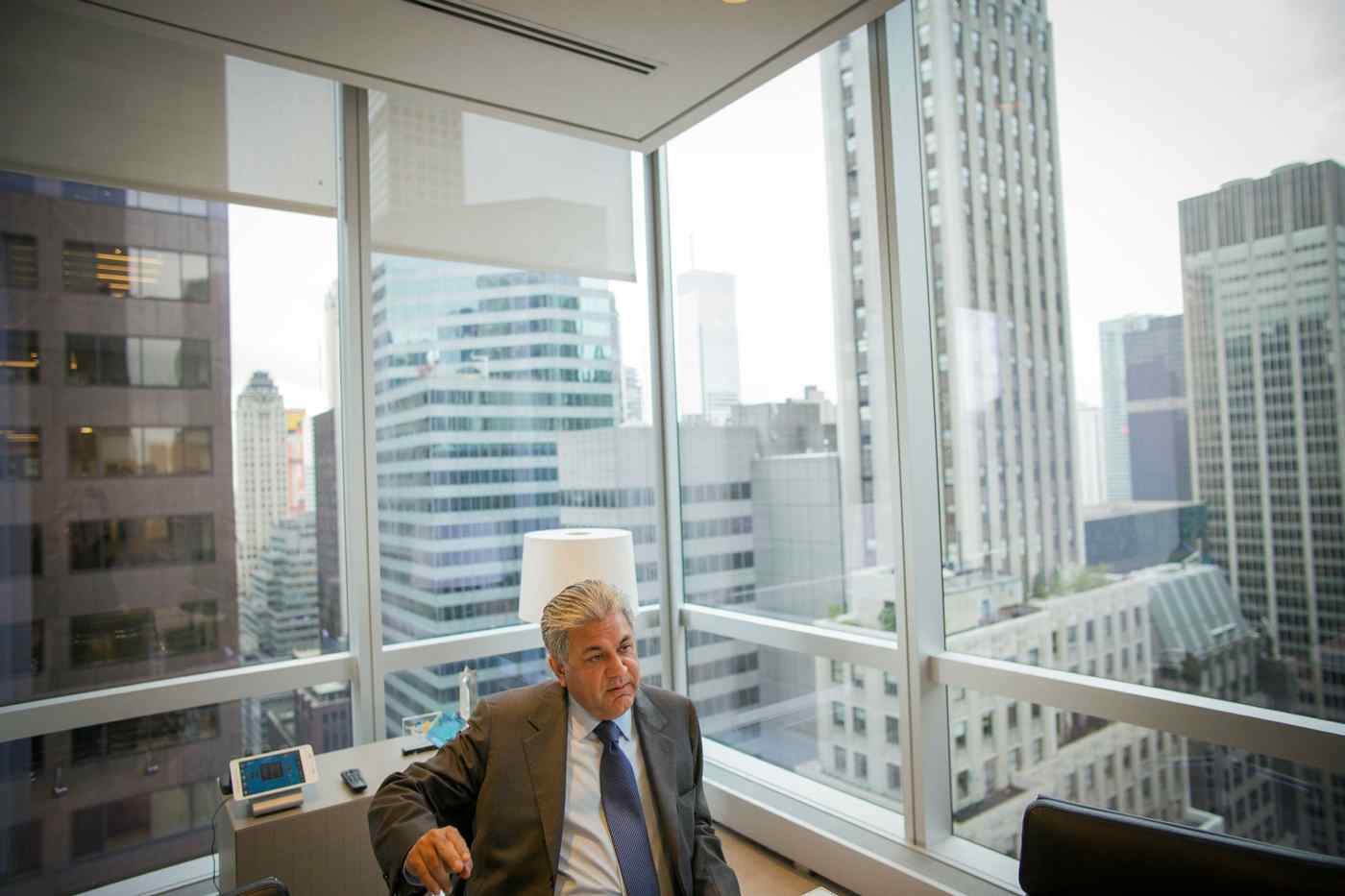
Arif Naqvi, pictured at Abraaj’s New York office, The private equity firm, founded by Arif in 2002, also had offices in Dubai, London and across Asia, Africa and Latin America © Angel Franco/New York Times/Redux/eyevine
K-Electric was Abraaj’s single largest investment. But as the private equity firm ran into financial difficulties in 2016, Naqvi struck a deal to sell control of the power company to Chinese state-controlled Shanghai Electric Power for $1.77bn. Political approval for the deal in Pakistan was important and Naqvi lobbied the governments of both Sharif and Khan for backing.
In 2016, he authorised a $20mn payment for Pakistan politicians to gain their support, according to US public prosecutors who later charged him with fraud, theft and attempted bribery. The payment was allegedly intended for Nawaz Sharif and his brother Shehbaz, who replaced Khan as prime minister in April. The brothers have denied any knowledge of the matter.
In January 2017, Naqvi hosted a dinner for Nawaz Sharif at Davos. After Khan became prime minister, Naqvi met him. While in office Khan criticised officials for delaying the sale of K-Electric but the deal has still not been completed.
Abraaj collapsed in 2018 after investors including the Gates Foundation started investigating whether the company was misusing money in a fund intended to buy and build hospitals across Africa and Asia. Abraaj said it was managing assets of about $14bn at the time. In 2019, US prosecutors indicted Naqvi and five of his former colleagues. Two former Abraaj executives have since pleaded guilty. Naqvi denies the charges.
Naqvi was arrested at London’s Heathrow airport in April 2019 after returning from Pakistan and faces up to 291 years in jail if found guilty of the US charges. Khan’s telephone number was included on a list of contacts he handed to police — a fact mentioned by lawyers representing the US government during Naqvi’s extradition trial in London. His appeal against extradition to the US is expected to conclude later this year. But he has had to pay £15mn for bail and has hefty ongoing legal expenses. Wootton Place was sold to a hedge fund manager in 2020 for £12.25mn.
Naqvi and his lawyer did not respond to requests for comment on this story. Moving money around In 2012 Khan visited Wootton Place. In a written response to questions from the FT, the former cricketer said he had gone to “a fundraising event which was attended by many PTI supporters”. Blofeld, the cricket commentator, recalls that Khan “was persuaded to take the field” at Wootton. “It was extraordinary to see how he still had the knack of bowling those fast inswingers,” he says.
Naqvi, a self-described cricket purist, provided the bats, balls, osteopaths, masseurs, food, accommodation and clothing. He literally wrote the rules for the matches. Ball tampering — banned in cricket — was permitted in matches at Wootton because “it is important to encourage innovation and experimentation in cricket, as what is considered illegal today may be de rigueur tomorrow,” Naqvi once wrote to guests. It was a critical time for Khan to gather funds ahead of the election scheduled for May 2013, and Naqvi worked closely with other Pakistani businessmen to raise money for his campaign.
The largest entry in Wootton Cricket’s bank account in the months before the election was the $2mn from Sheikh Nahyan, now the UAE’s minister for tolerance. He is also an investor in Pakistan.
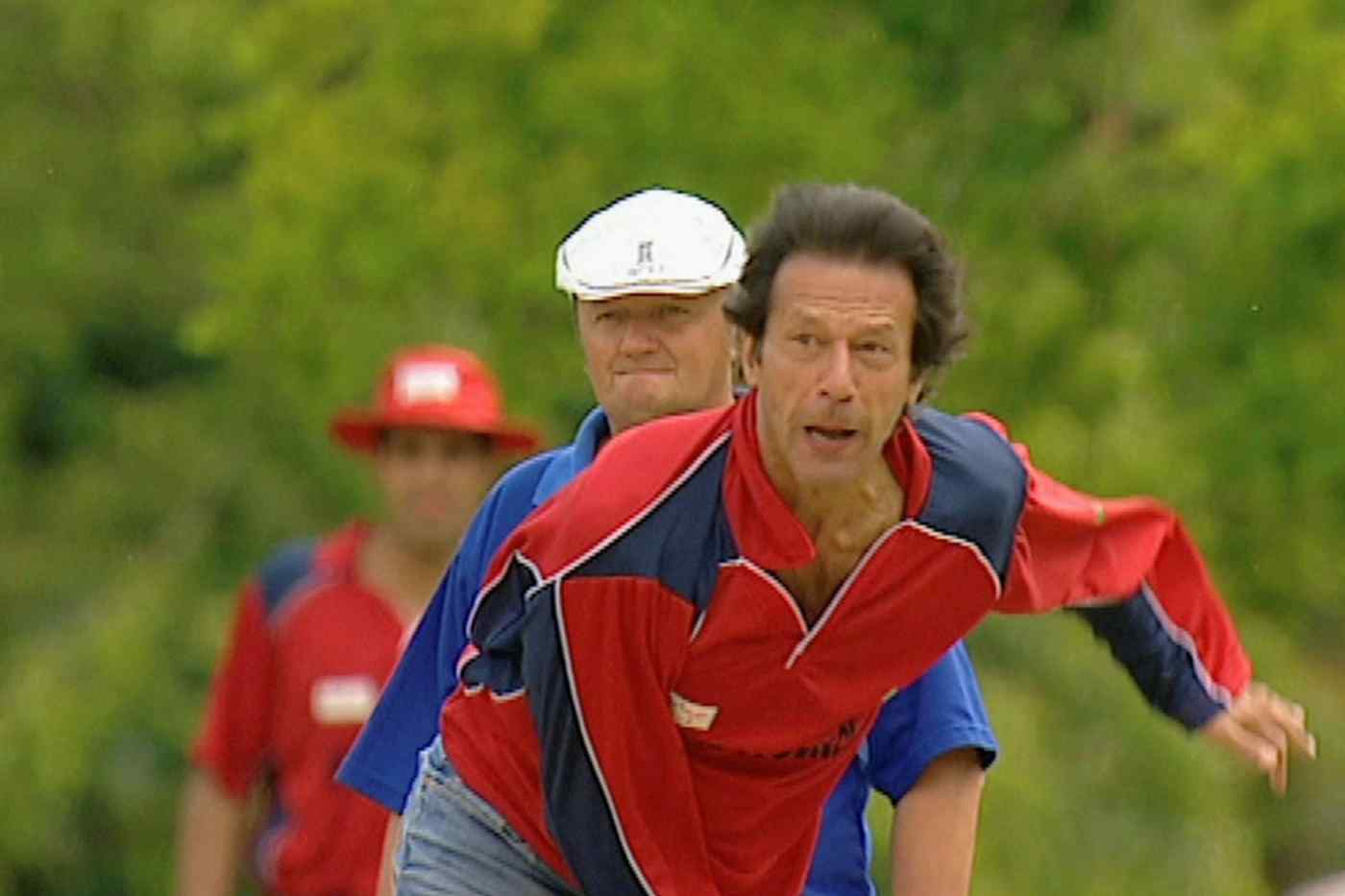
Video grab of Imran Khan in 2012 bowling at the Wootton T20 Cricket Cup event at Arif Naqvi’s house in Oxfordshire
After Lakhani, the Abraaj executive responsible for cash flow, told Naqvi in an email that the sheikh’s money had arrived, Naqvi replied that he should send “1.2 million to PTI”. In another email to Lakhani after the sheikh’s money entered the Wootton Cricket account Naqvi wrote: “do not tell anyone where funds are coming from, ie who is contributing”. “Sure sir,” Lakhani responded. He wrote that he would transfer $1.2mn from Wootton Cricket to the PTI’s account in Pakistan. Then after considering sending the funds to the PTI via Naqvi’s personal account, Lakhani proposed sending the money in two instalments to a personal account for businessman Tariq Shafi in Karachi and an account for an entity called the Insaf Trust in Lahore.
Although the ownership of the Insaf Trust is unclear, the emails state that the final destination was the PTI. “Don’t eff this up rafiq,” Naqvi wrote in another email. On May 6 2013, Wootton Cricket transferred a total of $1.2mn to Shafi and the Insaf Trust. Lakhani wrote in an email to Naqvi that the transfers were for the PTI. Khan confirmed that Shafi donated to the PTI. “It is for Tariq Shafi to answer as to from where he received this money,” Khan said in response to the FT.
Shafi didn’t respond to requests for comment. ‘Prohibited funding took place’ The ECP investigation into the funding of Khan’s party was triggered when Akbar S Babar, who helped establish the PTI, filed a complaint in December 2014. Although thousands of Pakistanis worldwide sent money for the PTI, Babar insists that “prohibited funding took place”. In his written response, Khan said that neither he nor his party was aware of Abraaj providing $1.3mn through Wootton Cricket. He also said he was “not aware” of the PTI receiving any funds that originated from Sheikh Nahyan. “Arif Naqvi has given a statement which was filed before the Election Commission also, not denied by anyone, that the money came from donations during a cricket match and the money as collected by him was sent through his company Wootton Cricket,” Khan wrote.
Khan said he was waiting for the verdict of the election commission’s investigation. “It will not be appropriate to prejudge PTI.” In its January report, the election commission said Wootton Cricket had transferred $2.12mn to the PTI but didn’t reveal the original source of the money. Naqvi has acknowledged his ownership of Wootton Cricket and denied any wrongdoing. In a statement, he told the election commission that: “I have not collected any fund from any person of non-Pakistani origin, company [public or private] or any other prohibited source.”
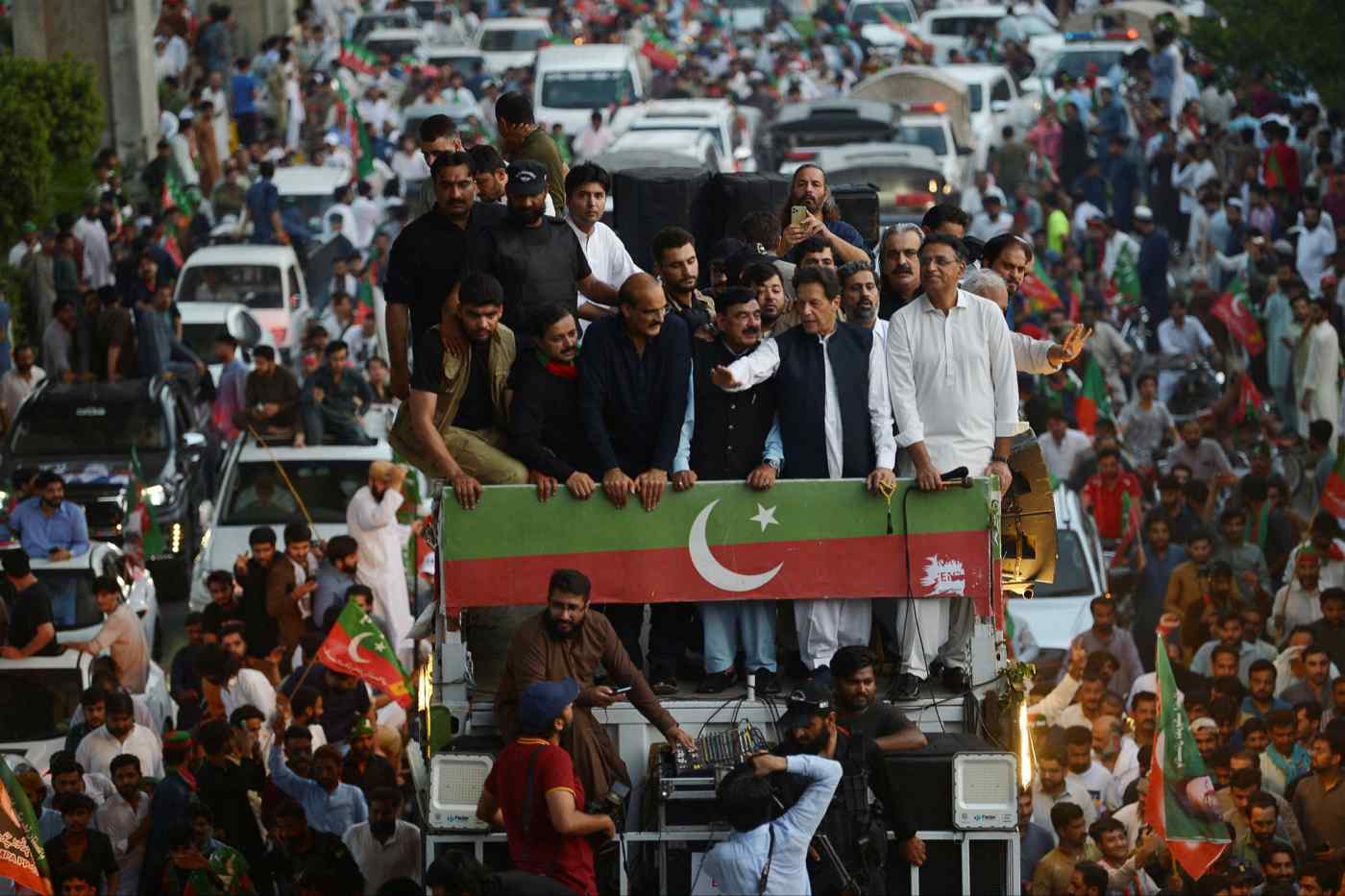
Imran Khan, who stood down as prime minister in April after losing a parliamentary vote of no confidence, is attempting a political comeback © Farooq Naeem/AFP/Getty Images
The bank statement for Wootton Cricket tells a different story. It shows that Naqvi transferred three instalments directly to the PTI in 2013 adding up to a total of $2.12mn. The largest was the $1.3mn from Abraaj which company documents show was transferred to Wootton Cricket but charged to its holding company for K-Electric. The impact of the scandal could yet hit Khan’s re-election ambitions.
In July he renewed his call for an early poll after the PTI won a critical victory in by-elections in Punjab, Pakistan’s most populous province. On Twitter, he called the Election Commission of Pakistan “totally biased”. At the same time prime minister Shehbaz Sharif has urged the commission to publish its verdict in the PTI case, saying that the delays caused by political infighting had given Khan “a free pass despite his repeated & shameless attacks on state institutions”. Yet the Atlantic Council’s Younus says that Khan’s loyal supporters won’t be moved whatever the outcome. They “do not and will not care. In fact, Khan may claim that the story is further evidence that foreign powers are leveraging global media to conspire against him.”
For Babar, who helped found the PTI, the controversy is proof that Khan has fallen short of the ideals they set out to champion in politics. “He had the opportunity of a lifetime and he blew it,” Babar says. “Our cause was reform, change — introduce the values in our politics that we espoused publicly.” Instead, he says, “[Khan’s] morality compass in a political sense went haywire”.
https://www.ft.com/content/de29dd83-8fa9-40a2-aff6-5996f1557d0d
Despite laws banning foreign funding of politics in Pakistan, documents show a money trail from Oxfordshire via the UAE to the coffers of Khan’s party
Author: Simon Clark (28 July 2022 Financial Times)

At the height of his success, the Pakistani tycoon Arif Naqvi invited cricket superstar Imran Khan and hundreds of bankers, lawyers and investors to his walled country estate in the Oxfordshire village of Wootton for weekends of sport and drinking. The host was the founder of the Dubai-based Abraaj Group, then one of the largest private equity firms operating in emerging markets, with billions of dollars under management.
At the “Wootton T20 Cup”, over which Naqvi presided from 2010 to 2012, the main event was a cricket tournament between teams with invented names: the Peshawar Perverts or the Faisalabad Fothermuckers. They played on an immaculate pitch amid 14 acres of formal gardens and parkland at Wootton Place, Naqvi’s 17th-century residence. Veteran cricket commentator Henry Blofeld attended along with expert umpires and film crews.
“You can choose to play in order to impress or make a fool of yourself, or alternatively just to be an innocent bystander,” Naqvi wrote in an invitation to the event. The guests were asked to pay between £2,000 and £2,500 each to attend, with the money going to unspecified “philanthropic causes”, Naqvi said.
It is the type of charity fundraiser repeated up and down the UK every summer. What makes it unusual is that the ultimate benefactor was a political party in Pakistan. The fees were paid to Wootton Cricket Ltd, which, despite the name, was in fact a Cayman Islands-incorporated company owned by Naqvi and the money was being used to bankroll Pakistan Tehreek-e-Insaf, Khan’s political party.
Funds poured into Wootton Cricket from companies and individuals, including at least £2mn from a United Arab Emirates government minister who is also a member of the Abu Dhabi royal family.
Pakistan forbids foreign nationals and companies from funding political parties, but Abraaj emails and internal documents seen by the Financial Times, including a bank statement covering the period between February 28 and May 30 2013 for a Wootton Cricket account in the UAE, show that both companies and foreign nationals as well as citizens of Pakistan sent millions of dollars to Wootton Cricket — before money was transferred from the account to Pakistan for the PTI.
The funding of the party is at the centre of a years-long investigation by the Election Commission of Pakistan, an inquiry that has taken on even greater importance as Khan — who lost office in April — plots a political comeback.

Arif Naqvi surrounded by players during the Wootton T20 Cricket Cup event at his Oxfordshire house
But back in 2013, Khan — a World Cup-winning cricket captain — was riding a wave of popular support and campaigning to upend Pakistan’s politics on an anti-corruption ticket. He presented himself to the electorate as a democratic reformer — born in Pakistan and with experience of living in the west — who could break the hold of the political family dynasties that had dominated the country for decades.
Although Khan lost the 2013 general election to longtime rival Nawaz Sharif, his party became the third largest in the National Assembly. Naqvi’s star was also rising. His private equity firm was expanding and winning new investors. He became a regular fixture at World Economic Forum meetings in Davos.
In July 2017, Pakistan’s Supreme Court removed Sharif from office over corruption allegations. Khan won the election in July 2018. As prime minister he became increasingly critical of the west, praising Afghanistan’s Taliban when US forces withdrew in 2021, and visiting Vladimir Putin in Moscow on the day Russian forces invaded Ukraine in February.
The Election Commission of Pakistan has been investigating the funding of the PTI for more than seven years. In January, the ECP’s scrutiny committee issued a damning report in which it said the PTI received funding from foreign nationals and companies and accused it of under-reporting funds and concealing dozens of bank accounts.
Wootton Cricket was named in the report, but Naqvi wasn’t identified as its owner. In April, Khan stood down after losing a parliamentary vote of no confidence, triggered in part by rising inflation. He has accused the US of orchestrating the vote and is now attempting to stage a political return to contest a general election due to take place by October 2023.

Imran Khan campaigning in Karachi in 2013. Although he lost that general election, his PTI became the third largest party in Pakistan’s National Assembly © Athar Hussain/Reuters
That re-election effort means that although the Naqvi funding took place almost a decade ago, the controversy around it, and the final findings of the election commission, are likely to be at the forefront of Pakistan politics for some time.
While it has previously been reported that Naqvi funded Khan’s party, the ultimate source of the money has never before been disclosed. Wootton Cricket’s bank statement shows it received $1.3mn on March 14 2013 from Abraaj Investment Management Ltd, the fund management unit of Naqvi’s private equity firm, boosting the account’s previous balance of $5,431. Later the same day, $1.3mn was transferred from the account directly to a PTI bank account in Pakistan. Abraaj expensed the cost to a holding company through which it controlled K-Electric, the power provider to Karachi, Pakistan’s largest city.
A further $2mn flowed into the Wootton Cricket account in April 2013 from Sheikh Nahyan bin Mubarak al-Nahyan, a member of Abu Dhabi’s royal family, government minister and chair of Pakistan’s Bank Alfalah, according to the bank statement and a copy of the Swift transfer details. Naqvi then exchanged emails with a colleague about transferring $1.2mn more to the PTI.
Six days after the $2mn arrived in the Wootton Cricket bank account, Naqvi transferred $1.2mn from it to Pakistan in two instalments. Rafique Lakhani, the senior Abraaj executive responsible for managing cash flow, wrote in an email to Naqvi that the transfers were intended for the PTI. Sheikh Nahyan didn’t respond to requests for comment.

Abu Dhabi royal Sheikh Nahyan bin Mubarak al-Nahyan, right, talks to then Pakistan president Arif Ali Zardari in 2012. Nahyan channelled funds to the PTI via Wootton Cricket’s bank account © Nadeem Soomro/Reuters
“Like other populists, Khan is made of Teflon,” says Uzair Younus, director of the Pakistan initiative at the Atlantic Council, a Washington-based research group. “But his opponents will try to use the foreign funding controversy to weaken the argument that he is not corrupt,” he adds, and to encourage the election commission to “punish him and his party”.
A useful ally Naqvi, 62, was born into a Karachi business family. After studying at the London School of Economics he spent the 1990s working in Saudi Arabia and Dubai and started Abraaj in 2002, building it into an investment powerhouse. With offices in Dubai, London, New York and across Asia, Africa and Latin America, the company raised billions of dollars from the Bill & Melinda Gates Foundation, the US administration of Barack Obama, the British and French governments and other investors.
Well-connected, Naqvi liked to impress. John Kerry — a speaker at one Abraaj event — was approached by the company about working with it after he served as US secretary of state. Naqvi met Britain’s Prince Charles and was active in one of his charities, the British Asian Trust. He was a board member of the UN Global Compact, which advises the UN secretary-general, and sat alongside former Nissan chair Carlos Ghosn on the board of the Interpol Foundation, which raises funds for the global police organisation.
In Washington he was seen as a useful ally. The Obama administration pledged $150mn to an Abraaj fund investing in Middle Eastern companies: a press release said that the partnership would help turn the US president’s promise to improve economic relations with Islamic nations into a reality. Some even saw him as a possible future political leader in Pakistan, which he once described as “a country not known for transparency”, before adding that Abraaj “did everything by the book” during its control of K-Electric. “We avoided every single point where you would have had to come into contact with government — even though you were a utility — and have to pay someone something,” he said.

Arif Naqvi, pictured at Abraaj’s New York office, The private equity firm, founded by Arif in 2002, also had offices in Dubai, London and across Asia, Africa and Latin America © Angel Franco/New York Times/Redux/eyevine
K-Electric was Abraaj’s single largest investment. But as the private equity firm ran into financial difficulties in 2016, Naqvi struck a deal to sell control of the power company to Chinese state-controlled Shanghai Electric Power for $1.77bn. Political approval for the deal in Pakistan was important and Naqvi lobbied the governments of both Sharif and Khan for backing.
In 2016, he authorised a $20mn payment for Pakistan politicians to gain their support, according to US public prosecutors who later charged him with fraud, theft and attempted bribery. The payment was allegedly intended for Nawaz Sharif and his brother Shehbaz, who replaced Khan as prime minister in April. The brothers have denied any knowledge of the matter.
In January 2017, Naqvi hosted a dinner for Nawaz Sharif at Davos. After Khan became prime minister, Naqvi met him. While in office Khan criticised officials for delaying the sale of K-Electric but the deal has still not been completed.
Abraaj collapsed in 2018 after investors including the Gates Foundation started investigating whether the company was misusing money in a fund intended to buy and build hospitals across Africa and Asia. Abraaj said it was managing assets of about $14bn at the time. In 2019, US prosecutors indicted Naqvi and five of his former colleagues. Two former Abraaj executives have since pleaded guilty. Naqvi denies the charges.
Naqvi was arrested at London’s Heathrow airport in April 2019 after returning from Pakistan and faces up to 291 years in jail if found guilty of the US charges. Khan’s telephone number was included on a list of contacts he handed to police — a fact mentioned by lawyers representing the US government during Naqvi’s extradition trial in London. His appeal against extradition to the US is expected to conclude later this year. But he has had to pay £15mn for bail and has hefty ongoing legal expenses. Wootton Place was sold to a hedge fund manager in 2020 for £12.25mn.
Naqvi and his lawyer did not respond to requests for comment on this story. Moving money around In 2012 Khan visited Wootton Place. In a written response to questions from the FT, the former cricketer said he had gone to “a fundraising event which was attended by many PTI supporters”. Blofeld, the cricket commentator, recalls that Khan “was persuaded to take the field” at Wootton. “It was extraordinary to see how he still had the knack of bowling those fast inswingers,” he says.
Naqvi, a self-described cricket purist, provided the bats, balls, osteopaths, masseurs, food, accommodation and clothing. He literally wrote the rules for the matches. Ball tampering — banned in cricket — was permitted in matches at Wootton because “it is important to encourage innovation and experimentation in cricket, as what is considered illegal today may be de rigueur tomorrow,” Naqvi once wrote to guests. It was a critical time for Khan to gather funds ahead of the election scheduled for May 2013, and Naqvi worked closely with other Pakistani businessmen to raise money for his campaign.
The largest entry in Wootton Cricket’s bank account in the months before the election was the $2mn from Sheikh Nahyan, now the UAE’s minister for tolerance. He is also an investor in Pakistan.

Video grab of Imran Khan in 2012 bowling at the Wootton T20 Cricket Cup event at Arif Naqvi’s house in Oxfordshire
After Lakhani, the Abraaj executive responsible for cash flow, told Naqvi in an email that the sheikh’s money had arrived, Naqvi replied that he should send “1.2 million to PTI”. In another email to Lakhani after the sheikh’s money entered the Wootton Cricket account Naqvi wrote: “do not tell anyone where funds are coming from, ie who is contributing”. “Sure sir,” Lakhani responded. He wrote that he would transfer $1.2mn from Wootton Cricket to the PTI’s account in Pakistan. Then after considering sending the funds to the PTI via Naqvi’s personal account, Lakhani proposed sending the money in two instalments to a personal account for businessman Tariq Shafi in Karachi and an account for an entity called the Insaf Trust in Lahore.
Although the ownership of the Insaf Trust is unclear, the emails state that the final destination was the PTI. “Don’t eff this up rafiq,” Naqvi wrote in another email. On May 6 2013, Wootton Cricket transferred a total of $1.2mn to Shafi and the Insaf Trust. Lakhani wrote in an email to Naqvi that the transfers were for the PTI. Khan confirmed that Shafi donated to the PTI. “It is for Tariq Shafi to answer as to from where he received this money,” Khan said in response to the FT.
Shafi didn’t respond to requests for comment. ‘Prohibited funding took place’ The ECP investigation into the funding of Khan’s party was triggered when Akbar S Babar, who helped establish the PTI, filed a complaint in December 2014. Although thousands of Pakistanis worldwide sent money for the PTI, Babar insists that “prohibited funding took place”. In his written response, Khan said that neither he nor his party was aware of Abraaj providing $1.3mn through Wootton Cricket. He also said he was “not aware” of the PTI receiving any funds that originated from Sheikh Nahyan. “Arif Naqvi has given a statement which was filed before the Election Commission also, not denied by anyone, that the money came from donations during a cricket match and the money as collected by him was sent through his company Wootton Cricket,” Khan wrote.
Khan said he was waiting for the verdict of the election commission’s investigation. “It will not be appropriate to prejudge PTI.” In its January report, the election commission said Wootton Cricket had transferred $2.12mn to the PTI but didn’t reveal the original source of the money. Naqvi has acknowledged his ownership of Wootton Cricket and denied any wrongdoing. In a statement, he told the election commission that: “I have not collected any fund from any person of non-Pakistani origin, company [public or private] or any other prohibited source.”

Imran Khan, who stood down as prime minister in April after losing a parliamentary vote of no confidence, is attempting a political comeback © Farooq Naeem/AFP/Getty Images
The bank statement for Wootton Cricket tells a different story. It shows that Naqvi transferred three instalments directly to the PTI in 2013 adding up to a total of $2.12mn. The largest was the $1.3mn from Abraaj which company documents show was transferred to Wootton Cricket but charged to its holding company for K-Electric. The impact of the scandal could yet hit Khan’s re-election ambitions.
In July he renewed his call for an early poll after the PTI won a critical victory in by-elections in Punjab, Pakistan’s most populous province. On Twitter, he called the Election Commission of Pakistan “totally biased”. At the same time prime minister Shehbaz Sharif has urged the commission to publish its verdict in the PTI case, saying that the delays caused by political infighting had given Khan “a free pass despite his repeated & shameless attacks on state institutions”. Yet the Atlantic Council’s Younus says that Khan’s loyal supporters won’t be moved whatever the outcome. They “do not and will not care. In fact, Khan may claim that the story is further evidence that foreign powers are leveraging global media to conspire against him.”
For Babar, who helped found the PTI, the controversy is proof that Khan has fallen short of the ideals they set out to champion in politics. “He had the opportunity of a lifetime and he blew it,” Babar says. “Our cause was reform, change — introduce the values in our politics that we espoused publicly.” Instead, he says, “[Khan’s] morality compass in a political sense went haywire”.
https://www.ft.com/content/de29dd83-8fa9-40a2-aff6-5996f1557d0d



